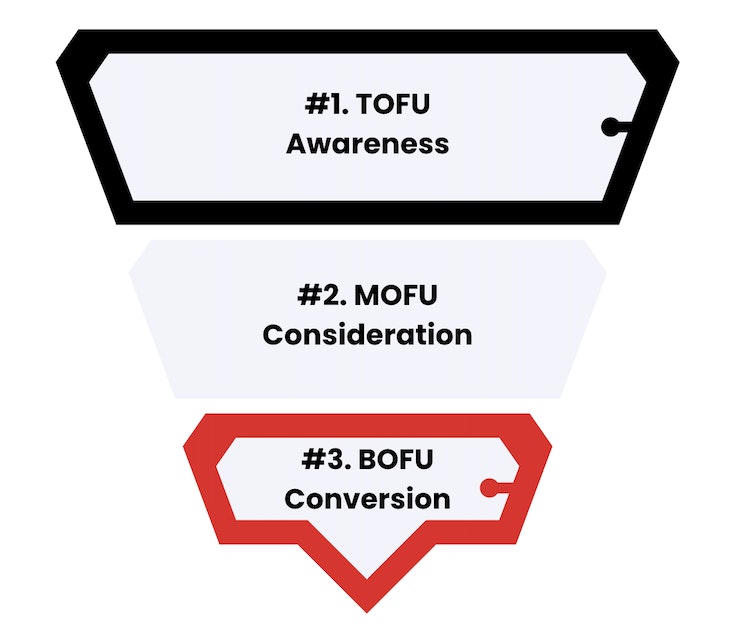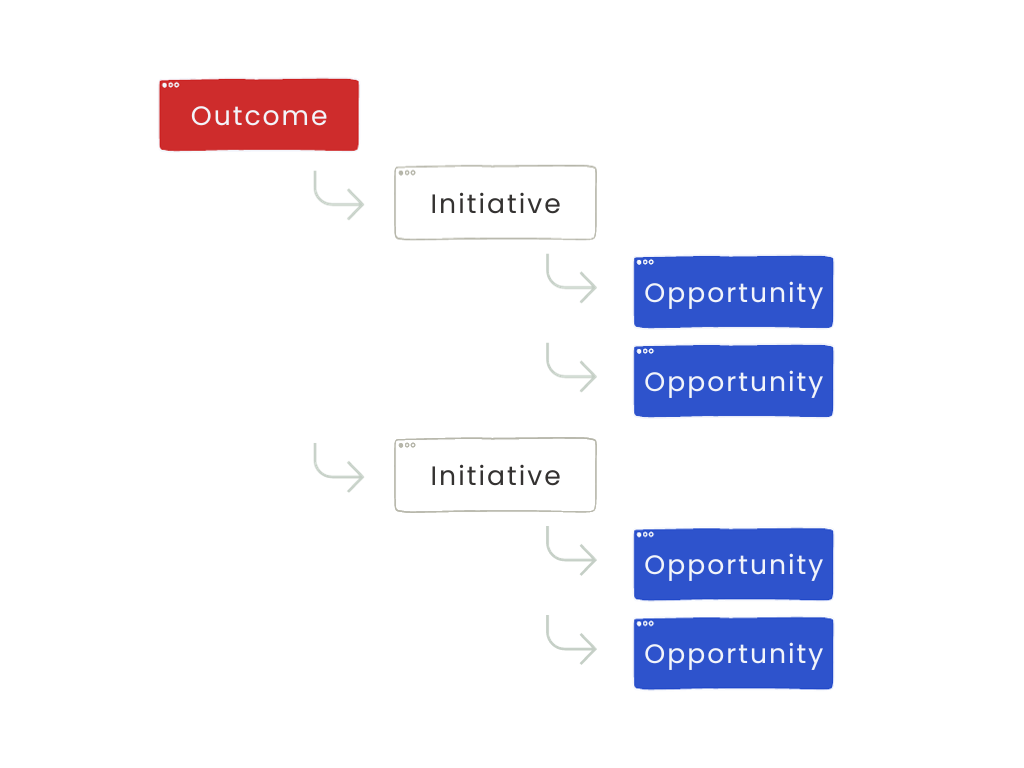Table of Contents
If you work in SaaS, do any of the following resonate?
- You have a great SaaS product but not the sales pipeline to show for it
- You know for a fact there’s an untapped market of potential customers searching for products like yours, yet you can’t seem to reach them
- You see your competitors’ search marketing efforts paying off while you seem to be stagnant or even losing market share
- What relatively little traffic you do get to your website tends to convert poorly
If any of the above hit a little too close to home, you’re in good company.
The truth is that executing a SaaS marketing strategy that actually drives leads and grows MRR means getting creative. It often also means creating mindset shift away from some of digital marketing’s most common truisms.
In this article, we’re going to offer an approach to growing leads that’s scalable, cost-effective, and sustainable, and can turn your site into a lead-generation engine: the bottom-up content strategy.
Let’s dig in.
The Problems with Conventional Top-Down Approaches to SaaS Content
Let’s first define terms. When we say “bottom-up,” we’re referring to the marketing funnel and customer journey. The closer to the bottom of the funnel a customer is, the closer they are to converting. While the funnel is an oversimplification of most real customer journeys, it’s a helpful concept for loosely mapping the distance from conversion and what kinds of resources are needed by customers at a given point in their journey.
In the context of SEO and content marketing more broadly, the long-held consensus has been that companies should start at the top of the funnel and work their way down. By targeting high-volume keywords at the top of the funnel, you can begin to capture a nontrivial amount of traffic right away and introduce your brand to more searchers. While it’s a popular approach, we’d argue there are several problems with it, especially for SaaS companies, which we’ll get into in detail below.

It’s difficult to prove the business value of SEO
Even when conversion tracking is set up properly, it’s not always straightforward to prove the business value of SEO. In fact, that’s one of the reasons why it’s notoriously difficult to get budget for SEO initiatives. Starting at the top of the funnel just exacerbates this problem.
Top-of-funnel content may perform well, ranking for relevant keywords and earning significant traffic, but it is, by definition, unlikely to yield many conversions. People searching for these terms aren’t looking to take action and so are most likely to read the article and bounce.
This isn’t to say there’s no value in top-of-funnel content; there absolutely is. TOFU content earns backlinks, helps grow brand awareness, and can help build topical authority. But early on in an SEO program when motivation is high and results are scarce, it’s important to build momentum by earning actual conversions - especially for SaaS companies.
Competition is fierce for high-volume keywords
The time-honored tradition of trying to rank for high-volume keywords has left the SERPs crowded and difficult to penetrate for many search terms. If a keyword has a high volume and is relevant to your product, you’ll often face an uphill battle - especially in competitive verticals. And if a keyword has high volume but little relevancy, you’ll be capturing unqualified traffic for traffic’s sake.
We’d rather pursue hyper-relevant, highly descriptive keywords with less search volume but a higher conversion rate.
Traffic-based “strategies” aren’t outcome-driven
Another problem with starting at the top of the funnel is that it’s often indicative of a broader issue: lack of any kind of outcome-driven strategy. The conventional approach to keyword targeting has often looked like this:
- Start with a “seed” keyword
- Use keyword research tools to find the highest volume keywords that are even remotely relevant to the product or service
- Export these keywords and sort by volume
- Work your way down the list until you eventually get to the terms people are actually searching for when they’re thinking about buying
Of course, this is not a strategy; at best, it’s a cookie-cutter process. It’s the same mentality that leads to “random acts of SEO,” the term we use to describe doing scattershot optimizations in hopes of something useful happening.
Instead, we start each new engagement by building an outcome-driven search strategy. Rather than having a specific format or template, an outcome-driven strategy simply means starting with the client’s business goals and reverse engineering a roadmap that will lead to those stated outcomes.

Our Approach to Building Bottom-Up Content Strategies
As an agency serving SaaS companies, we’ve had a lot of experience creating bottom-up strategies for our clients. Over the years, we’ve found what works and what doesn’t based on our experience.
Now that we’ve fleshed out the problems with using a top-of-funnel, volume-based approach, let’s get into the common ingredients of a successful SaaS SEO strategy.
Address customer pain points
The cornerstone of how we approach SaaS SEO is to speak directly to the pain points of people who could benefit from our clients’ products. By basing our strategy around common customer pain points rather than high-volume short-tail keywords, we can more directly tap into our clients’ markets and position their products as the solution to their problems.
Rather than targeting high-volume keywords, crossing our fingers, and hoping a few people will convert, we’re intentionally targeting keywords that signal a higher likelihood of conversion.
As an example of this strategy in action, let’s use an article we helped Treehouse create called “How to Become a Web Developer Without a Degree.” The pain point for the user is not knowing how to pursue a career in web development without having received a degree. The article addresses the pain point by providing useful advice and, of course, letting them know that they can learn the skills they need by taking courses through Treehouse.

Use a content framework
Using a framework, such as jobs-to-be-done, is helpful because it gives us creative constraints that help us focus on topics that are likely to convert (i.e. help people do what they’re trying to accomplish).
The jobs-to-be-done framework has broader usage in marketing and strategy but for our purposes, it simply means shifting our focus away from target audiences or user demographics and toward helping users achieve whatever their goal is.
An example of this approach in the wild is Cohley’s article, “Benefits of Integrated Content Marketing.” We chose to target this keyword because it implied the searcher had a job to be done with which Cohley could help: creating an integrated content marketing plan that lowered costs and produced better results.

Help customers narrow their options
Once a potential customer has gone through the process of understanding what they need and getting a sense of which products on the market could work as solutions, they run up against the hassle of choosing a product that best meets their needs. This presents us with the perfect opportunity to be the resource they’re looking for.
We do this primarily by publishing product roundups and comparison articles. While many companies recoil at the thought of mentioning competitors in their own content, these articles tend to convert at a high rate and filter out users for whom their product isn’t the best fit. When done in a way that’s honest and doesn’t denigrate competitors, these articles are potent sales tools.
For our client, Integrate.io, we helped develop the article “Top 5 Microsoft SQL ETL Tools for Data Integration” to help potential customers narrow their options and convert visitors who are a good fit. It has become one of Integrate’s highest-converting articles (as a group, articles containing “tools” in the title have converted at a rate 3x higher than the blog average).

Position your product as the solution
We’re believers in the idea that blog content should work as an extension of a company’s sales team. Conventional wisdom instructs us to do the opposite: dance around the fact that people may want to buy our product, lest we scare them away with our salesy-ness. This is obviously misguided advice for bottom and middle-of-funnel keywords.
By definition, users searching for lower-funnel keywords are looking for a solution, often in the form of a product. There’s no need to be shy about positioning your product as the solution they need. In fact, your site visitors will likely thank you for it by converting to leads.
Rethink your SaaS content strategy
In the competitive SaaS marketing landscape, the traditional top-down approach to SEO content is increasingly proving to be less effective. The challenges of proving the business value of SEO, facing stiff competition for high-volume keywords, and lacking an outcome-driven strategy have left many SaaS companies with meager pipelines and stagnant MRR.
If you’re struggling to capture new organic leads, it may be time to rethink your SaaS marketing strategy and embrace the bottom-up approach. By doing so, you'll not only stand out in a crowded marketplace but also build a loyal customer base that appreciates your solutions.
If you’re ready to start driving traffic that actually converts, we’d love to hear from you. We specialize in creating bottom-up strategies for SaaS businesses and have a proven track record of doing so successfully. If you’d like to know more about how we work, let’s chat.

